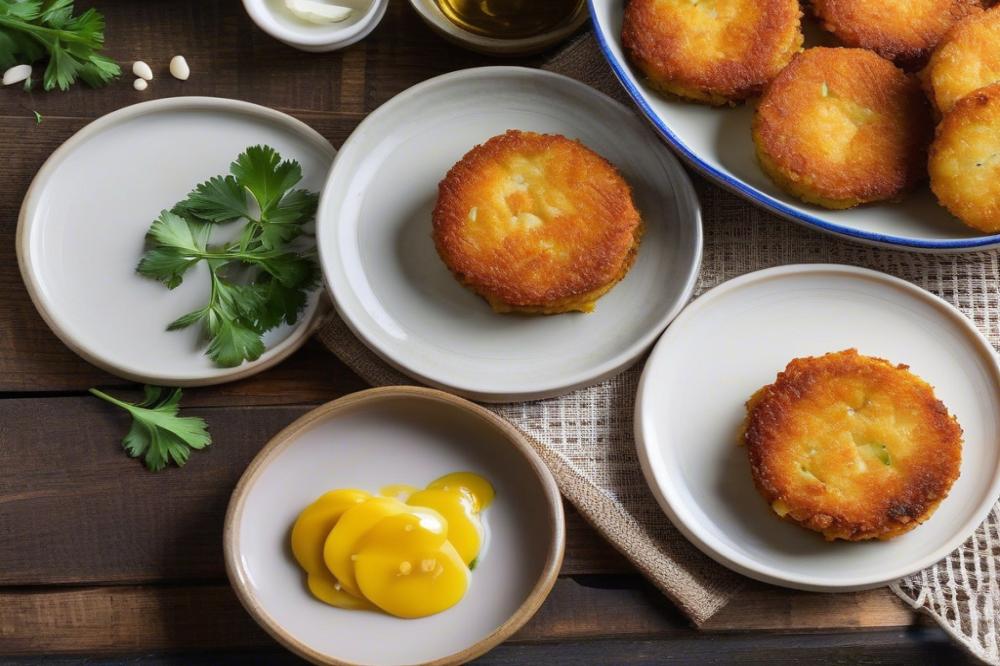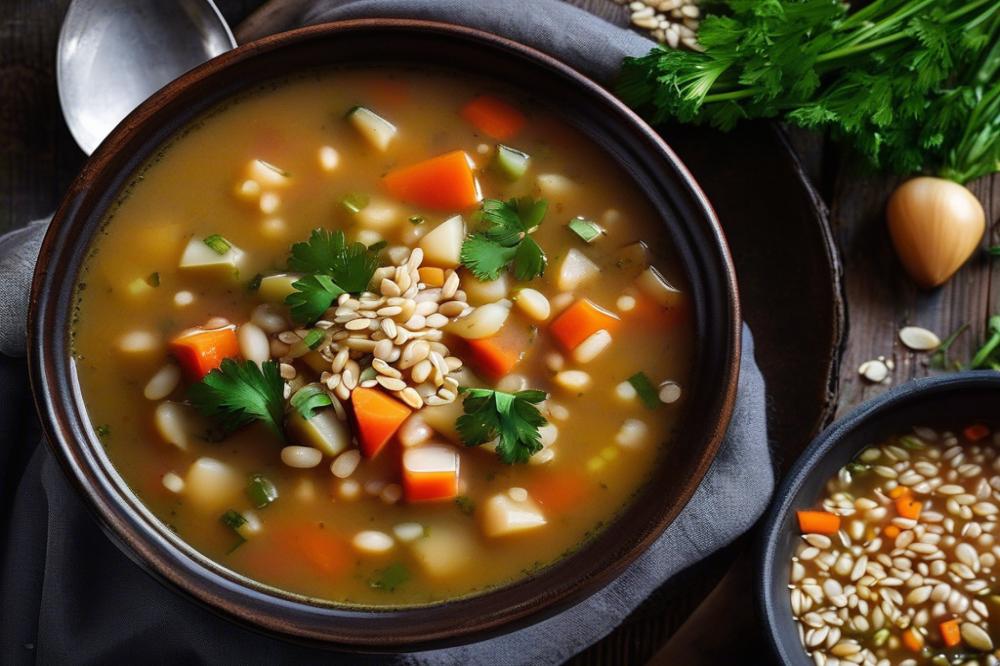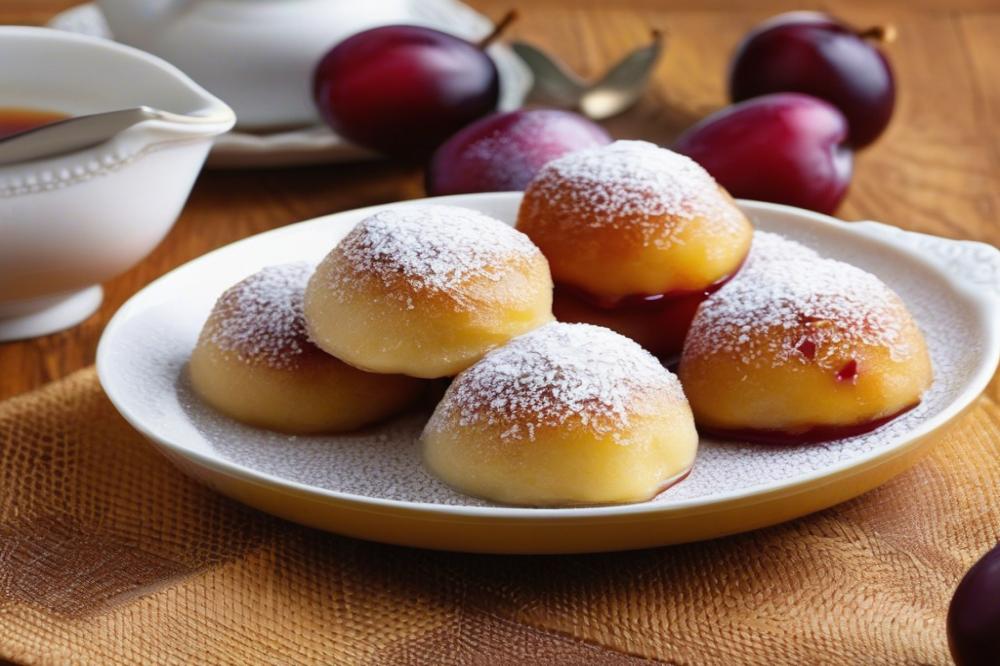Pastéis de Bacalhau: A Delicious Icon of Portuguese cuisine
Pastéis de Bacalhau, also known as Codfish Cakes, are a cherished delight in Portugal. They embody the heart of Portuguese cuisine with their rich flavors and comforting textures. Often served as appetizers, these delectable snacks shine at gatherings and family meals. As a staple in seafood recipes, they connect many people to their cultural roots. The appeal of these cakes goes beyond ordinary dishes, offering a taste of home for many.
This dish reflects the importance of tradition and culinary heritage in Portugal. Frying these treats creates a delightful golden crust that contrasts beautifully with the soft, flavorful filling. Each bite reveals the quintessential elements of comfort food—simple, satisfying, and oh so enjoyable. Codfish plays a starring role, making it a must-try for anyone curious about seafood delights.
Making Pastéis de Bacalhau doesn’t have to be complicated. Encouragement can be found in numerous easy recipes that simplify the process. With a few ingredients and steps, anyone can prepare these tasty snacks at home. This accessibility invites more people to explore Portuguese cooking, opening doors to flavorful adventures in the kitchen.
Whether enjoyed at family gatherings or as a comforting weeknight meal, these Codfish Cakes hold a special place in many hearts. They serve as a reminder of the simple joys found in sharing food with loved ones. So, gather your ingredients and prepare to make a dish that embodies Portuguese culture and brings warmth to any table.
What are Pastéis de Bacalhau?

Pastéis de Bacalhau are a type of codfish cake popular in Portuguese cuisine. These delicious bites are made primarily from shredded cod, potatoes, and various seasonings. A blend of flavors comes together, making these snacks a favorite among locals and tourists alike. Often enjoyed as appetizers, they are served in homes, restaurants, and food markets throughout Portugal.
History and origins of codfish cakes
The roots of codfish cakes trace back to the days of Portuguese exploration. Sailors relied on dried and salted cod, which was easy to preserve during long voyages. This fish became an essential ingredient in many traditional recipes. In time, codfish cakes emerged as a way to use leftover fish and potatoes. Over the years, they evolved into a beloved dish served by families across the country.
Cultural significance in Portugal
Culturally, these cod cakes hold a special place in Portuguese hearts. They symbolize comfort food, often associated with gatherings and celebrations. Families prepare them during holidays, special occasions, or simply as a treat. Many Portuguese consider them a national dish, representing the country’s rich maritime heritage. Festivals dedicated to seafood also showcase these delightful snacks, highlighting their importance in regional cuisines.
Common variations and regional differences
Variations of these cod cakes can be found throughout Portugal. Ingredients may differ slightly from one region to another, reflecting local tastes. In some areas, spices like cumin or paprika are added for extra flavor. Some people prefer a creamier consistency, incorporating cheese or cream into the mix. Others may use different types of fish or seafood, creating variations that add to the culinary diversity. Ultimately, these adaptations contribute to the unique identity of Portuguese snacks.
Ingredients and Quantities

To prepare delicious codfish cakes, specific ingredients are needed. Here’s a list of what you will require:
- 2 cups of mashed potatoes
- 1 cup of cooked and flaked codfish
- 1 small onion, finely chopped
- 2 cloves of garlic, minced
- 1/4 cup of fresh parsley, chopped
- 1 egg
- Salt and pepper to taste
- 1 cup of flour
- Oil for frying
Each ingredient plays a crucial role in achieving the right flavor and texture. Mashed potatoes provide a soft base, while codfish adds a savory taste that is characteristic of Portuguese cuisine. Cooking the fish beforehand is essential, as it helps to blend flavors better. The onions and garlic bring out a delightful aroma that enhances the dish. Fresh parsley introduces a hint of vibrancy and freshness. Using a well-beaten egg helps bind the mixture together, making it easier to shape into cakes.
Quality matters when it comes to ingredients. Selecting fresh codfish will significantly improve the flavor of these appetizers. Frozen fish may be convenient, but fresh options are always preferred for authentic taste. Choose starchy potatoes for the best texture. Varieties like Russet or Yukon Gold work wonderfully. Smoked cod can also be used for a distinct taste wave. Moreover, always opt for high-quality oils when frying; this can prevent the cakes from absorbing too much greasiness. Flavorful oils like olive oil are excellent choices for achieving the best results.
Gathering these selected ingredients will set the stage for making a comforting and satisfying dish. Cooking these codfish cakes provides an easy step into enjoying traditional recipes from Portugal. Set the table for some delicious seafood snacks that everyone can enjoy!
Cooking Instructions

Step-by-step guide to prepare Pastéis de Bacalhau
Start by soaking the codfish in water. Leave it for about 24 hours to remove excess salt. Change the water a few times during this period. When the cod is ready, drain and rinse it. Next, boil the fish in fresh water for about 10-15 minutes. Once cooked, remove it from the water and let it cool. Flake the fish into small pieces, checking for any bones.
In a large bowl, combine the flaked codfish with mashed potatoes. Utilize either fresh or leftover potatoes that are creamy. Chop up some onions and parsley for flavor, and add them to the mixture. Incorporate a beaten egg to bind the ingredients together. Season with salt, pepper, and a pinch of paprika for added taste.
Hand shape the mixture into small, flat cakes. Each one should be about the size of your palm. Dust them lightly with flour to help with frying. This will aid in creating a crispy exterior.
Tips for frying and achieving perfect texture
Frying requires the right oil. Peanut or vegetable oil works best due to their high smoke point. Use a deep pan for even cooking. Heat the oil to about 350°F (175°C). A thermometer can be very helpful here.
Gently add the codfish cakes to the hot oil. Avoid overcrowding the pan; this keeps the oil temperature stable. Fry them until golden brown, usually about 3-4 minutes on each side. Using a slotted spoon, remove the cakes and place them on paper towels to absorb excess oil.
Make sure to check for doneness. Each cake should have a crispy outer layer while remaining soft inside. If you prefer a healthier option, consider baking them in the oven at 400°F (200°C) for around 20-25 minutes, flipping halfway through.
Suggested cooking times and temperatures
When frying, aim for a cooking time of 3-4 minutes per side. This delicate balance allows for a crisp texture without overcooking the inside. For baking, adjust the temperature to around 400°F (200°C). Monitor closely to prevent burning.
Serve your codfish cakes hot. They make an excellent appetizer for gatherings or a nice addition to any meal. Pair them with a side of garlic mayonnaise or a simple salad for extra charm. Enjoy this classic dish rooted in Portuguese cuisine and made easy.
Nutritional Information

Understanding the nutrient composition of each ingredient helps cooks make informed choices. The main components of Pastéis de Bacalhau are codfish, potatoes, onions, and eggs. Each contributes distinct nutritional benefits, making this dish both satisfying and flavorful.
Breakdown of nutrients in each ingredient
The codfish serves as the primary source of protein. It is low in fat and rich in omega-3 fatty acids, which are beneficial for heart health. Potatoes provide carbohydrates, offering necessary energy, but they also supply potassium and fiber. Onions, often used in many traditional recipes, add flavor along with a modest amount of vitamins and antioxidants. Eggs contribute protein and healthy fats, essential for muscle maintenance and overall health.
Considerations for health-conscious cooks
Frying is a common preparation method for these codfish cakes, which can add extra calories and fats. Using alternative cooking methods, such as baking or air-frying, may appeal to those looking to reduce calorie intake. Adjusting portion sizes can also contribute to a healthier meal. For those managing dietary restrictions, substituting ingredients is a flexible option. Gluten-free flour can replace regular flour, while non-dairy alternatives may suit lactose-intolerant diners. These simple modifications help preserve the essence of Portuguese cuisine while catering to various dietary needs.
Comparative analysis with other Portuguese snacks
When looking at other Portuguese snacks, such as pastéis de nata or chouriço, the codfish cakes showcase their advantages. They provide a rich source of protein compared to the sugar content found in pastel de nata. Additionally, the savory flavors of cod and potatoes make them a satisfying option for many. Most seafood snacks carry healthy omega-3 fatty acids, but the balance of protein and carbohydrates in these cakes offers a hearty alternative to lighter appetizers. Overall, this dish embodies comfort food while maintaining a relatively nutritious profile compared to other selections within Portuguese cuisine.
Serving Suggestions
Best Ways to Serve Pastéis de Bacalhau
An excellent way to enjoy these delightful codfish cakes is as an appetizer. They can be served hot, fresh from the frying pan. This dish is popular in Portuguese cuisine and often takes center stage at social gatherings. Consider placing them on a large platter for sharing. Adding a side of lemon wedges allows guests to customize their flavor. Drizzling a bit of olive oil can enhance their taste.
Pairing with Traditional Portuguese Sides or Sauces
Traditional recipes often suggest pairing these seafood delights with certain sides. Rice cooked with herbs complements their flavor nicely. Salads made with fresh vegetables also work well. Another option is to serve them alongside a zesty garlic aioli or a spicy piri-piri sauce. These sauces add an exciting kick. Utilizing fresh ingredients is essential for authentic taste.
Ideas for Presentation and Garnishing
Creating an appealing presentation can elevate the dining experience. Use vibrant colors to make the dish pop on the table. A sprinkle of fresh parsley or cilantro can add a splash of green. Serve the codfish cakes on a wooden board for a rustic look. Adding some olives or pickled vegetables can provide texture and interest. These small details help in showcasing the rich culture of Portugal.
Exploring Variations
Different twists on the classic recipe
Many cooks enjoy adding their own flair to traditional Portuguese dishes like codfish cakes. For instance, some people mix in different herbs or spices. Fresh cilantro, parsley, or even dill can create a vibrant flavor profile. Others like to experiment with cheese, incorporating a bit of feta or a sharp cheddar into the batter. This adds a creamy texture and richness, elevating them beyond the typical recipe.
Incorporating local ingredients or flavors
Using local ingredients can also change the game for these delicious appetizers. In coastal areas, local seafood might replace the traditional codfish. Shrimp or crab meat can make for an exciting alternative. Seasonal vegetables such as spinach or roasted peppers can be blended into the mix, enhancing both flavor and nutrition. Combining local flavors brings a taste of the region into your kitchen while paying homage to Portuguese cuisine.
Suggestions for vegetarian or alternative versions
Vegetarians may feel left out when it comes to codfish cakes, but there are several ways to make adaptations. For those who want to skip the fish, mashed chickpeas or white beans can serve as a solid base. These legumes blend smoothly and provide a hearty texture. Mixing in vegetables like zucchini, carrots, or sweet potatoes boosts flavor and nutrition.
Gluten-free options are also possible. You can substitute regular flour with chickpea flour or rice flour. This adaptation makes it accessible for those with dietary restrictions.
The beauty of these variations lies in their ease. With a few swaps, you can create delicious recipes that fit your needs while still enjoying the comforting essence of these beloved Portuguese snacks. Cooking at home allows you to personalize each dish and make it truly your own.
Bringing the Taste of Portugal Home
Pastéis de Bacalhau holds a special place in the hearts of many. These codfish cakes represent more than just a dish; they embody a tradition that stretches across generations. The crispy exterior and tender interior create a delightful combination that can brighten any meal. Sharing this dish can foster connections with family and friends. It’s a wonderful way to introduce others to Portuguese cuisine.
Trying your hand at this recipe is an exciting adventure. Following the steps outlined makes the process manageable and enjoyable. With practice, anyone can master this dish. It’s always rewarding to create something delicious from scratch, especially when you can share it with others.
Exploring more easy recipes from Portugal can further enhance your culinary journey. Each dish offers a glimpse into the rich culture and traditions of the country. From savory stews to sweet pastries, there is so much to discover. Why not dive deeper into the flavors and techniques of this vibrant cuisine? Every new recipe is an invitation to experience something special. Embrace the opportunity to savor the delights that await.



